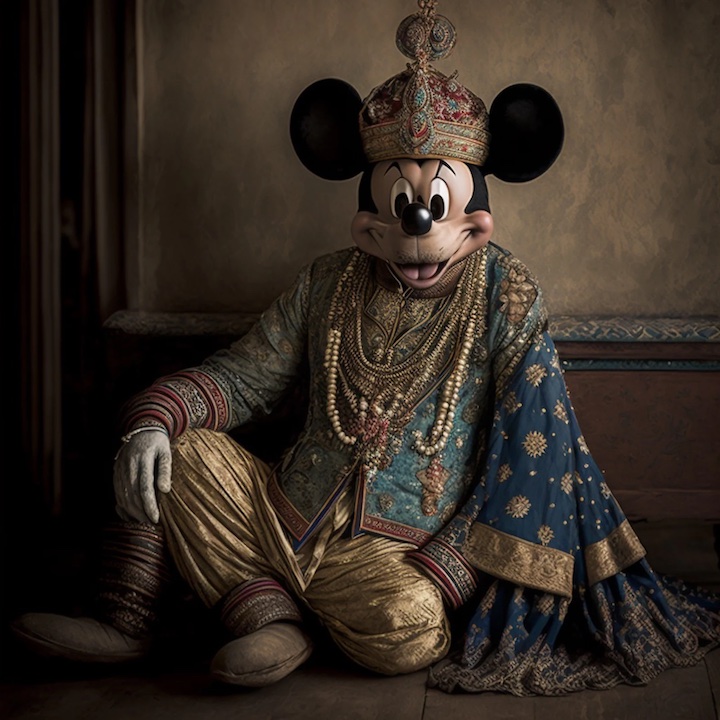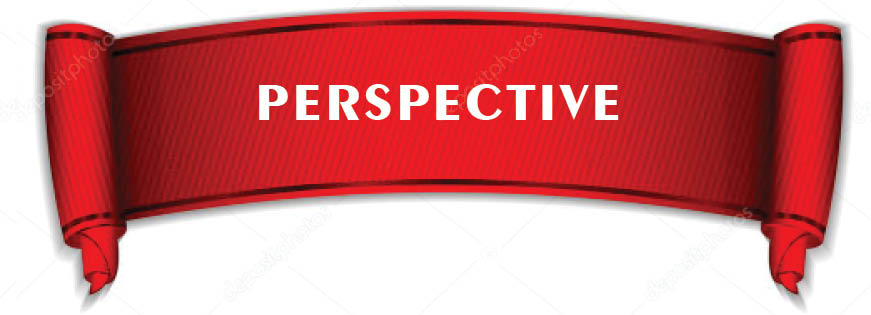Sunday Morning / December 31, 2023
Mickey Mouse will enter the public domain in 2024, along with Minnie and Tigger and Donald Trump, too. The most iconic characters in American pop culture will soon belong to the world.
All as the presumptive GOP nominee turns 4 criminal indictments and 91 felony charges into a stunning campaign to reclaim the White House and “Make American Great Again!”
Though its into the future we're looking tonight, let us first look back before saying goodbye.
Nobel Prize
They’re six separate prizes awarded to "those who’ve conferred the greatest benefit to humankind." Past recipients include Barack Obama, Nelson Mandela, the Dalai Lama and Mother Teresa. Since 1901, they have and continue to be awarded annually to those who’ve "done the most or the best work for the fraternity between nations; the abolition or reduction of standing armies; and for the promotion of peace congresses.”
This year, the award for physiology or medicine was awarded to Katalin Kariko and Drew Weissman “for their discoveries concerning nucleoside base modifications that enabled the development of effective mRNA vaccines against COVID-19.” While the Coronavirus Pandemic claimed nearly 7 million souls; over 700+ million were infected worldwide; and over 70% of the world population received at least one dose of a COVID-19 vaccine. *There were approximately 1 million new cases reported to the World Health Organization this month; and nearly 4000 deaths worldwide.
The award for physics was shared by three scientists — Pierre Agostini, Ferenc Krausz and Anne L’Huillier — “for experimental methods that generate attosecond pulses of light for the study of electron dynamics in matter.” These three collaborated to create ultra-short pulses of light that can give a snapshot of changes within atoms, potentially leading to the detection of diseases long before they actually occur.
Chemistry went to Moungi G. Bawendi, Louis E. Brus and Alexei I. Ekimov “for the discovery and development of quantum dots; nanoparticles so small that their size determines their properties.” These remarkable nanoparticles will enable surgeons to be microscopically precise; increase the efficiency of solar panels; enhance the brilliance and luminosity of LED screens; and create smaller, faster, remarkably smarter devices.
The award for economic science went to Harvard’s Claudia Goldin “for having advanced our understanding of women’s labour market outcomes.” It isn't just a win for Goldin, but a victory for women and a cautionary tale for men. Her study of symphony orchestra auditions — where a screen was used to keep a musician's identity concealed as they played — is particularly compelling.
For as we speak, we choose and use one of four basic communication styles: assertive > aggressive > passive > and passive-aggressive. Therefore, the award for literature went to the Norwegian prodigy Jon Fosse “for his innovative plays and prose which give voice to the unsayable.” In his radical reduction of language and dramatic action, Fosse demonstrates how to access a deeper consciousness and richer experience with life and living.
Finally, the award for peace was awarded to a jailed Iranian activist Narges Mohammadi “for her fight against the oppression of women in Iran and her fight to promote human rights and freedom for all.” Her 30 years of activism to peacefully bring grass-roots change through education, advocacy, and civil disobedience highlights not how we live—but why.

AI Art
The laureates receive a Nobel Prize diploma > Nobel Prize medal > and 11 million Swedish krona, about $989,000 in current exchange rates. The world, in return, a fraternity of nations through congresses for peace.
Let’s Finish the Job
It was written in to keep former confederates from returning to government office. Article 3 of the Fourteen Amendment reads:
No person shall be a Senator or Representative in Congress, or elector of President and Vice-President, or hold any office, civil or military, under the United States, or under any State, who, having previously taken an oath, as a member of Congress, or as an officer of the United States, or as a member of any State legislature, or as an executive or judicial officer of any State, to support the Constitution of the United States, shall have engaged in insurrection or rebellion against the same, or given aid or comfort to the enemies thereof. But Congress may by a vote of two-thirds of each House, remove such disability.
Was the United States Commander-in-Chief considered “an officer under the United States” on Jan 6, 2021? Or was he merely an office seeker? An appeals court is due to hear the immunity challenge on January 9; couching if or whether Donald Trump can even stand for insurrection or rebellion.
The United States of America v. Donald J. Trump follows on March 4 and argues Trump’s alleged participation in attempts to overturn the 2020 U.S. presidential election, including, but not limited to, his involvement in the January 6 Capitol attack.
The defense will argue that the events of Jan 6 were a riot, not an insurrection, and that the former president is shielded from both by executive privilege; the free speech clause of the First Amendment; and criminal immunity. Moreover, is it justiciable for Maine's attorney general to disqualify Trump from the 2024 ballot without due process? Can Colorado's Supreme Court make decisions which effects the entire nation?
The High Court is destined to intervene in due course. To the spoils, can a Trump appointed conservative majority on the U.S. Supreme Court be objective? In fact, these are they who dismissed Texas v. Pennsylvania on standing; sided with the January 6 committee; and declined to intervene in the Mar-a-Lago classified documents dispute.
Moreover, of Trump’s 62 lawsuits contesting election processes, vote counting, and the vote certification process in 9 states, many of the judges who dismissed those lawsuits were Trump appointees. Lady Justice, the allegorical personification of moral force in the U.S. judicial system, balances the scales of mercy and justice.
For the founding fathers created neither a Christian nation nor a democracy. They created only a republic: a state in which supreme power is held by the people, and administered by their elected representatives.
The nation’s policies, laws and principles were designed to be tabulated by votes, and as we usher in the new year its worth noting that if the election were held tonight, Trump would likely be the declared winner. The New York Times/Siena College polls shows the presumptive GOP nominee ahead of President Joe Biden in swing states, but Trump's second term isn't about campaign promises of revenge, trade wars, and mass deportations. In sum, it will be a re-writing of the terms of presidential power.

AI Art
For Trump, cohesive political philosophy is checked by America First. Would he turn Russia against China—as Nixon turned China against the Soviet Union—by abandoning Ukraine? What about that 10% across-the-board tariff on all imports? Will there be a radical policy shift on immigration and climate change? Yes, if and when it serves a cost-benefit analysis and bottom line for the American economy.
Forget that Biden added 14m jobs to impressive legislative accomplishments with comparisons to Lyndon Johnson. All those interest rate hikes that stifled inflation and staved off recession weren’t good for his approval ratings, despite the -4% unemployment rate run that hasn't been seen in 25 years. In polls, the majority of Americans still say they trust former president Donald Trump’s handling of the economy over Biden.
While Trump enabled Americans to borrow, Biden admonished them to save, but the appearance of a thing can differ from reality in this particular way. Ronald Reagan explains: “Government’s view of the economy could be summed up in a few short phrases: If it moves, tax it. If it keeps moving, regulate it. And if it stops moving, subsidize it.” We shouldn’t expect either candidate to be a Lincoln, Washington or Roosevelt. These were luminaries created by their time. What we can ask and should expect is to see the chief executive in that phrase.
Stand for America
When the Nobel Prize was awarded to Fosse in literature the committee explained that it was for “giving a voice to the unsayable.” That Mickey Mouse couldn’t actually speak in his first feature was because the film befell the advent of synchronized sound for sequences of dialogue. Not until “The Karnival Kid” did we see Mickey working his famous hot dog cart at the county fair or hear him call to friends Clarabelle Cow, Kat Nipp and Minnie Mouse. “Hot Dogs. Hot Dogs. Get your Hot Dogs here!”
Unleashing him from copyright and remanding him to the public domain presents a confounding challenge for the American icon. As AI and social media combine to contour the mouse into something we’ve not quite seen the look of before, to whom does his new and improved self image now belong? The search engines who point us to the original image; the AI generative distortion of the original data; or the consumer who summons him to TikTok?
As Walt Disney's "Steamboat Willie" joins Charlie Chaplin’s “Circus” in the public domain tomorrow, its worth considering the distinction between the policies of Isolationism and American Exceptionalism.
Ever since his first appearance in the 1928 short, audiences the world over have associated Mickey Mouse with Disney. For nearly a century the brand dwelled in a gossamer of isolationism, protected by copyright and creative license to ensure a cohesive message upon which the entire $168.43 billion dollar “wonderful world of Disney” was created.
This year, we’ll reinvent the mouse; improvise the brand; and recast our vote for the world's most recognizable and universally acclaimed fictional character of all time.








